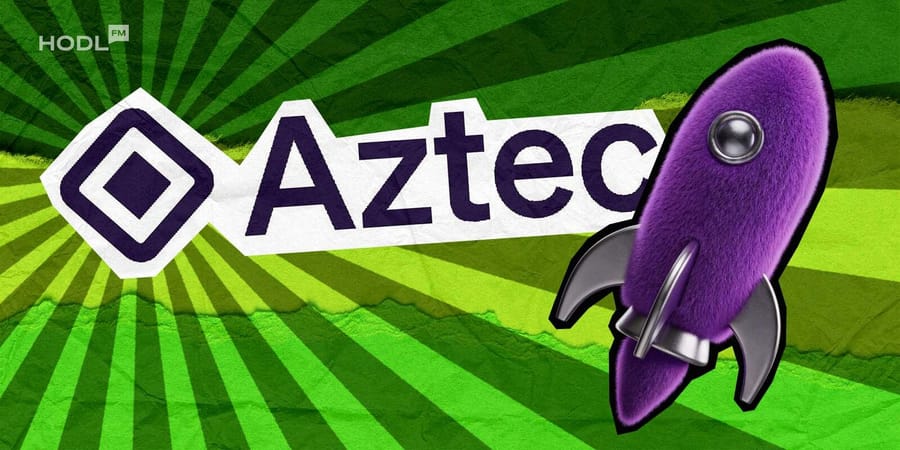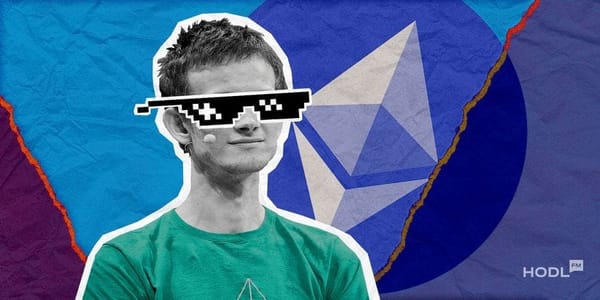The privacy-focused Layer 2 (L2) project Aztec Network has officially launched its new Ignition Chain on the Ethereum mainnet, marking a significant step forward for decentralized privacy technology. The developers described Ignition Chain as the “first fully decentralized second-layer solution.”
According to the team, the launch occurred after the validator queue reached 500 participants, a milestone required to trigger block production. This event signifies that the network has achieved a sufficient level of decentralization and technical readiness to operate securely.
“Aztec just shipped the Ignition Chain, the first fully decentralized L2 on Ethereum. This launches the decentralized consensus layer that powers the Aztec Network,” the team announced on X on Wednesday.
The mainnet rollout follows a public testnet that began in May, marking a relatively fast transition from testing to full deployment compared with many other L2 projects.
BREAKING: Aztec just shipped the Ignition Chain, the first fully decentralized L2 on Ethereum.
— Aztec (@aztecnetwork) November 19, 2025
This launches the decentralized consensus layer that powers the Aztec Network.https://t.co/nYyD7cykz2
🧵
Building a private world computer
The Ignition Chain represents the foundation of Aztec’s vision for a “private world computer,” allowing developers to build decentralized finance (DeFi) applications with end-to-end confidentiality.
The network employs zero-knowledge proofs (ZKPs), a cryptographic technique that allows transaction validation without disclosing sensitive data. This method preserves Ethereum’s transparency and verifiability while tackling one of blockchain’s most enduring challenges, privacy.
By integrating programmable privacy into its protocol, Aztec enables developers to write complex smart contracts that maintain confidentiality over transaction details. This marks a major evolution from earlier privacy solutions that only protected basic transfers.
Aztec’s co-founder Zac Williamson emphasized the importance of this shift in a post on X, writing:
“2025–2035 will be Privacy's turn of the wheel. We are going to see the rise of products and services that perform the same information processing role, but using distributed ledgers as their settlements layer and privacy tech as the execution engine. Data will be sucked out of the Web2 fortresses and given back to the user.”
Validator milestone confirms decentralization
Reaching 500 validators is a notable technical achievement for any blockchain network. In most L2 ecosystems, validator or sequencer nodes are initially centralized to maintain operational control, but Aztec’s design enables decentralized participation from the outset.
A network with 500 independent validators is significantly less vulnerable to manipulation or control by a single entity. This scale also provides greater security and resilience, aligning with the team’s claim that Ignition Chain is the first fully decentralized L2 layer on Ethereum.
Aztec’s emphasis on full decentralization puts it in contrast with other major Layer 2 solutions such as Optimism, Arbitrum, and Base. While those networks have introduced progressive decentralization, key functions like sequencing still remain under the oversight of project teams. Aztec’s deployment aims for decentralization across block production, validation, and governance.
AZTEC token sale and staking
In parallel with the mainnet launch, Aztec recently opened registration for its AZTEC token sale, attracting strong interest from the community. The AZTEC token serves as the native asset of Ignition Chain and is used for staking, governance, and block reward payouts.
To become an active validator, participants must lock 200,000 AZTEC tokens. This staking requirement helps ensure validators maintain honest behavior by having significant economic incentives in the network’s performance.
As of the latest update, the token sale had raised approximately $2.97 million from 2,328 bids submitted by 2,153 participants. According to the project’s timeline, open trading of AZTEC will begin on December 2, when the public auction starts. This provides an opportunity for more users to join the network’s ecosystem and participate in its governance.
Funding and competitive landscape
Aztec’s development has been backed by strong institutional funding. In 2022, the company raised $100 million in a Series B round led by a16z (Andreessen Horowitz). The capital enabled the team to accelerate zero-knowledge research and infrastructure development ahead of the mainnet launch.
Aztec now competes in an increasingly crowded L2 landscape alongside established networks like zkSync, StarkNet, and Arbitrum. However, its unique focus on programmable privacy differentiates it from other scaling solutions built primarily for transaction speed or cost efficiency.
By blending Ethereum’s security with advanced cryptographic privacy, Aztec positions itself as an infrastructure layer that could redefine DeFi’s next phase, one where confidentiality and compliance find a workable balance.
With the Ignition Chain live, Aztec Network moves closer to realizing its long-standing goal of merging scalability, privacy, and decentralization on Ethereum. The project’s blend of cryptographic innovation and open participation signals a new era for privacy-focused blockchain applications.

Disclaimer: All materials on this site are for informational purposes only. None of the material should be interpreted as investment advice. Please note that despite the nature of much of the material created and hosted on this website, HODL FM is not a financial reference resource, and the opinions of authors and other contributors are their own and should not be taken as financial advice. If you require advice. HODL FM strongly recommends contacting a qualified industry professional.





